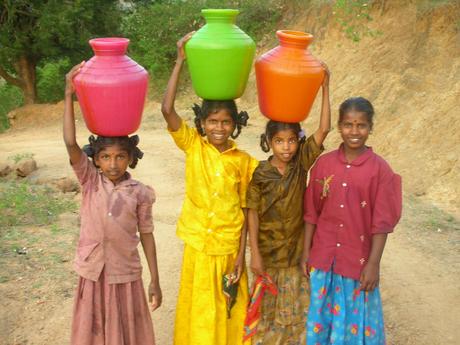 A few months ago in Maharashtra,a district in India,a number of girls changed their names. This is a big deal because the name,Nakusa or Nakushi, means unwanted in Hindi, so these girls decided to changetheir names in order to empower themselves.
A few months ago in Maharashtra,a district in India,a number of girls changed their names. This is a big deal because the name,Nakusa or Nakushi, means unwanted in Hindi, so these girls decided to changetheir names in order to empower themselves.Unfortunately, in India, as wellas in many other Eastern cultures, girls are indeed unwanted. (I don’t mean tostereotype or generalize here, since I know that many families value their girlchildren just as much as their boys. However, in general, the culture favorsboys over girls.) As a result, many infant girls are abandoned at birth anddoomed to live a bleak life in an orphanage until (if/when) they’re adopted. Parentswho have access to more advanced medical care will often test their unbornchildren’s sex, and selectively abort based on the results. Consequently, thereare bizarrely low birth rates for girls compared to boys in these countries,and an extreme population gender disparity. In India,there are only 914 girls under the age of six for every 1,000 boys, and Maharashtra has only 883 for every 1,000, one of thelowest rates in the country. Nicholas Kristof and Sheryl WuDunn,Pulitzer-winning New York Times reporters, estimate that approximately132,000 Indian girls from 0-5 die every year from neglect based on theirgender. Other countries have similar, if not even worse, statistics.
I’ve always found it interestingthat Western feminists view abortion as an integral women’s right, whileEastern feminists are often anti-abortion because of the selective sex abortionissue. I guess it just shows how much culture impacts political and socialadvocacy, that people working for the same overall goal will have totallydifferent viewpoints and methods to attain it based on where they live.
As I’ve said before,I’m into names and the inherent power they hold, so I think they’re reallyimportant. Religiously speaking, Judaism believes that a person’s name reflectshis or her essence. This is why there are few names with outright negativeconnotations in Hebrew. (Some names might have what we think are weird meaningsin today’s world; for example, Leah means cow. In biblical times, thiswas almost surely considered a very nice name because cows were an importantsource of income. Biblical characters whose names are interpreted as meaningbad things, like Nabal, are often nicknames that were given to themthroughout their lives rather than the name their parents gave them at birth.)
I find it sad that these Indiangirls had to go through their early lives being called unwanted, knowingthat in their culture they’re not valued simply because they have ovaries. I’mglad that they were given the opportunity to get rid of their “unwanted” names.(Yeah, sorry for the pun. I had to say it somewhere.)
But really. I know some peoplewill say that names are insignificant and this is a loud of meaningless garbageand the focus should be on more important stuff, like figuring out how to dealwith parents selectively aborting female fetuses. I agree that more attention shouldbe given to life-and-death situations, but I think that every feminist causedeserves at least a little publicity. I hope girls with names that keep themdown all across India willimitate these girls in Maharashtra and take itupon themselves to change their names.

